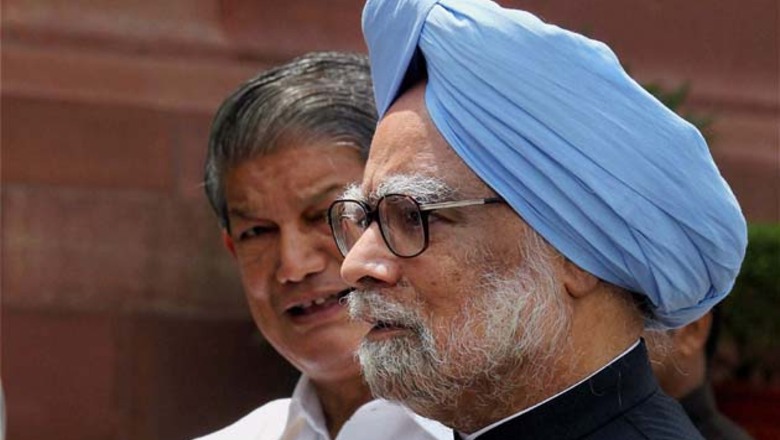
views
New Delhi: Prime Minister Manmohan Singh's argument that the CAG's calculations in the coal blocks allocations were flawed has found favour with economic experts. Siddharth Zarabi of CNBC-TV18 on Monday said that the PM's argument was based on essential economic logic.
"The basic flaw in the premise is that you cannot compare any average cost of production in Coal India with any start up operator. It's completely two comparisons which cannot be made. Coal India operates in a different legacy environment. It is a monopoly provider. The four arguments provided by the Prime Minister is essential economic logic but I suspect in the din, all logic will be lost," he said.
Reading a 32-point statement on the coal blocks allocations in both the Lok Sabha as well as the Rajya Sabha on Monday, the Prime Minister had said, "The observations of the CAG are clearly disputable... The report mentions that the delay in introduction of competitive bidding rendered the existing process beneficial to a large number of private companies. According to the assumptions and computations made by the CAG, there is a financial gain of about Rs. 1.86 lakh crore to private parties."
Continuing his attack on CAG, the PM said, "Let me humbly submit that, even if we accept CAG's contention that benefits accrued to private companies, their computations can be questioned on a number of technical points. The CAG has computed financial gains to private parties as being the difference between the average sale price and the production cost of CIL of the estimated extractable reserves of the allocated coal blocks.
"Firstly, computation of extractable reserves based on averages would not be correct. Secondly, the cost of production of coal varies significantly from mine to mine even for Coal India Limited (CIL) due to varying geo-mining conditions, method of extraction, surface features, number of settlements, availability of infrastructure etc. Thirdly, CIL has been generally mining coal in areas with better infrastructure and more favourable mining conditions, whereas the coal blocks offered for captive mining are generally located in areas with more difficult geological conditions. Fourthly, a part of the gains would in any case get appropriated by the government through taxation and under the MMDR Bill, presently being considered by Parliament, 26 per cent of the profits earned on coal mining operations would have to be made available for local area development.
"Therefore, aggregating the purported financial gains to private parties merely on the basis of the average production costs and sale price of CIL could be highly misleading. Moreover, as the coal blocks were allocated to private companies only for captive purposes for specified end-uses, it would not be appropriate to link the allocated blocks to the price of coal set by CIL."
Zarabi, however, added that the current logjam in Parliament over the issue would badly hamper the decision-making process in making further allocations which could adversely affect the country that is already facing severe power shortages.
"The fact is that at this point of time, the key takeaway is that this entire logjam will mean a complete standstill in decision making on further allocations, which (Coal Minister) Sriprakash Jaiswal so proudly spoke of. And given that 20,000 MW of power is already stranded in terms of availability of coal, the larger economic impact for this country which is already paying for power shortages will be a complete halt in decision making.
"The fact is that the ministers themselves three days back said that the guidelines and the norms for competitive bidding can only come perhaps by December this year or slip beyond that. (However) Once you are in election mode, there will be problems with that. So, now you are looking at four to six quarters, or more perhaps, of a complete decision making standstill and I think in that term, the legacy of this controversy will be far worse than what has happened."




















Comments
0 comment